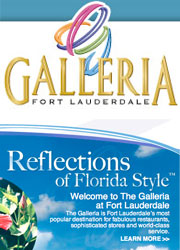In subtropical South Florida just about anything you stick in the ground has a good chance of growing, which is why so many plants classified variously as non-native, invasive, or exotic can thrive. Such plants may have been introduced intentionally. Australian pines, for example, were originally planted throughout the region as shade trees and windbreaks; now they're out of control in many areas. Likewise melaleucas, which were once recommended as ornamental landscape trees but are now considered a nuisance plant.
Other times unwitting home landscapers cultivate the wrong kinds of plants, thanks to misinformation from such seemingly reliable sources as books, friends, nurseries, and the Internet. A home landscape including, say, areca and Chinese fan palms, wandering Jew vines, lantana shrubs, flowering four o'clock and ground orchids, and such trees as schefflera, weeping fig, mimosa, and orchid trees might seem like a good plan, but all these plants wreak varying degrees of havoc on the native environment. Even such fruit trees as mango, guava, and sapodilla come with their own sets of problems. And forget about tossing out houseplants that have outgrown their containers - they can easily take root and spread until they run amok.
That, simply put, is the potential problem. Non-native, invasive, and exotic plants can go wild in our yards, parks, and natural areas and on our roadsides and canal banks. The vast majority pose no serious threat, but some grow out of control, competing with native vegetation and gradually displacing it, forever altering ecosystems that have developed over millions of years.
The most notorious invasive plants - the aforementioned Australian pines and melaleucas, along with Brazilian pepper - have long been targeted by intensive campaigns to curb their spread. But you can also do your part simply by paying closer attention to what you grow in your own yard. Don't trust older editions of landscaping guides, which may contain outdated information, and don't buy plants just because they're pretty or your friends or neighbors recommend them. And by all means don't put indiscriminate faith in the Internet, which is rife with misinformation.
The key is educating yourself on what you put into the ground and what you do with it once it's planted, and for help with that you can turn to Broward County Parks. From 9AM to 1PM on Saturday, April 11th, Secret Woods Nature Center in Dania Beach will hold its next Go Native in Broward County Plant Sale, followed two weeks later, on Saturday, April 25th, by a similar event at Fern Forest Nature Center in Coconut Creek, also from 9AM to 1PM. The events emphasize the right kinds of plants to grow in your home landscape. Gardening information and other activities will be offered as well.
Locations: Fern Forest Nature Center
201 Lyons Rd. South, Coconut Creek, FL 33063
954-357-5198
Secret Woods Nature Center
2701 W. State Rd. 84, Dania Beach, FL 33312
954-357-8884
Saturdays, April 11th (Secret Woods) and 25th (Fern Forest), 9AM-1PM
For all ages.
For more information, call Fern Forest at 954-357-5198 or Secret Woods at 954-357-8884. Fern Forest is accessible via Broward County Transit Routes #31 and #42, Secret Woods via Route #6.




















